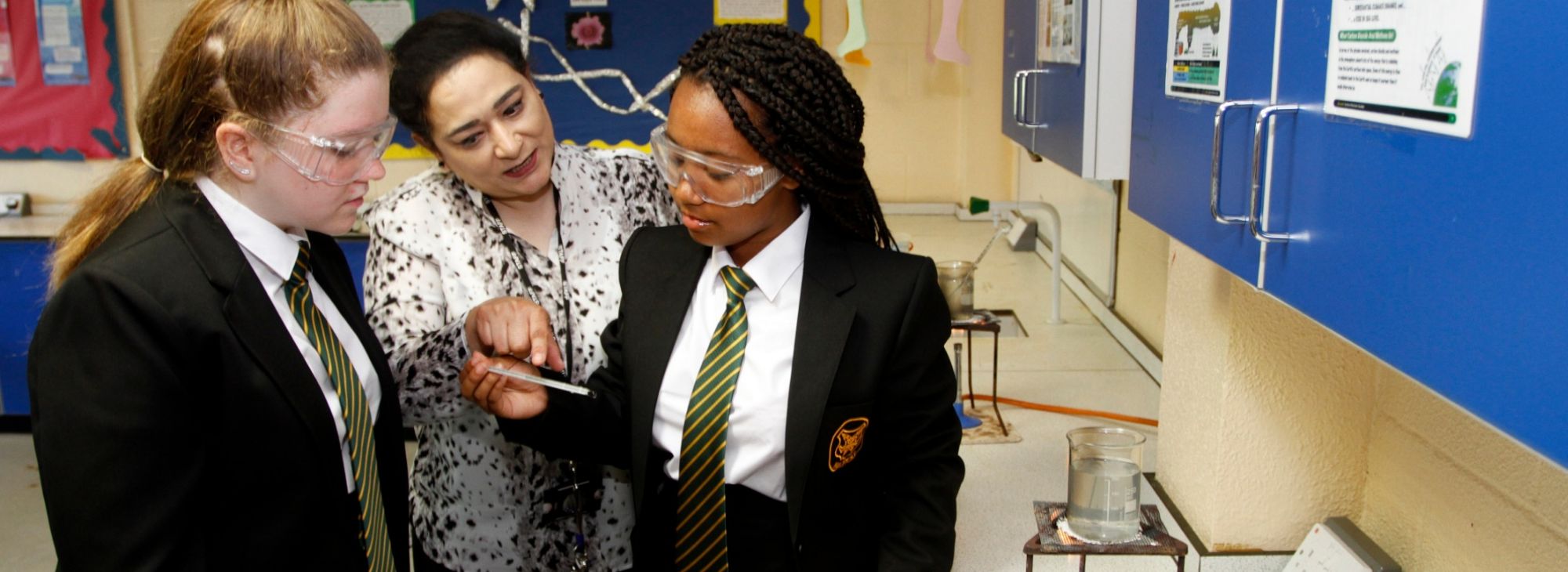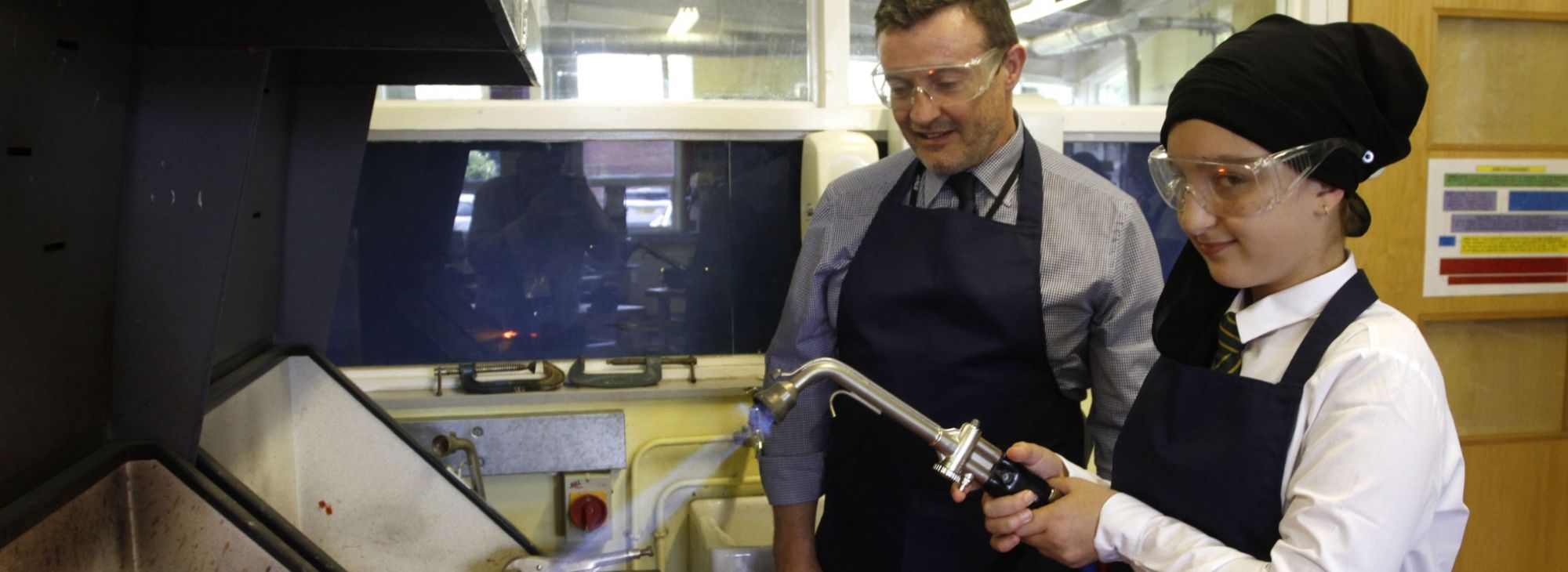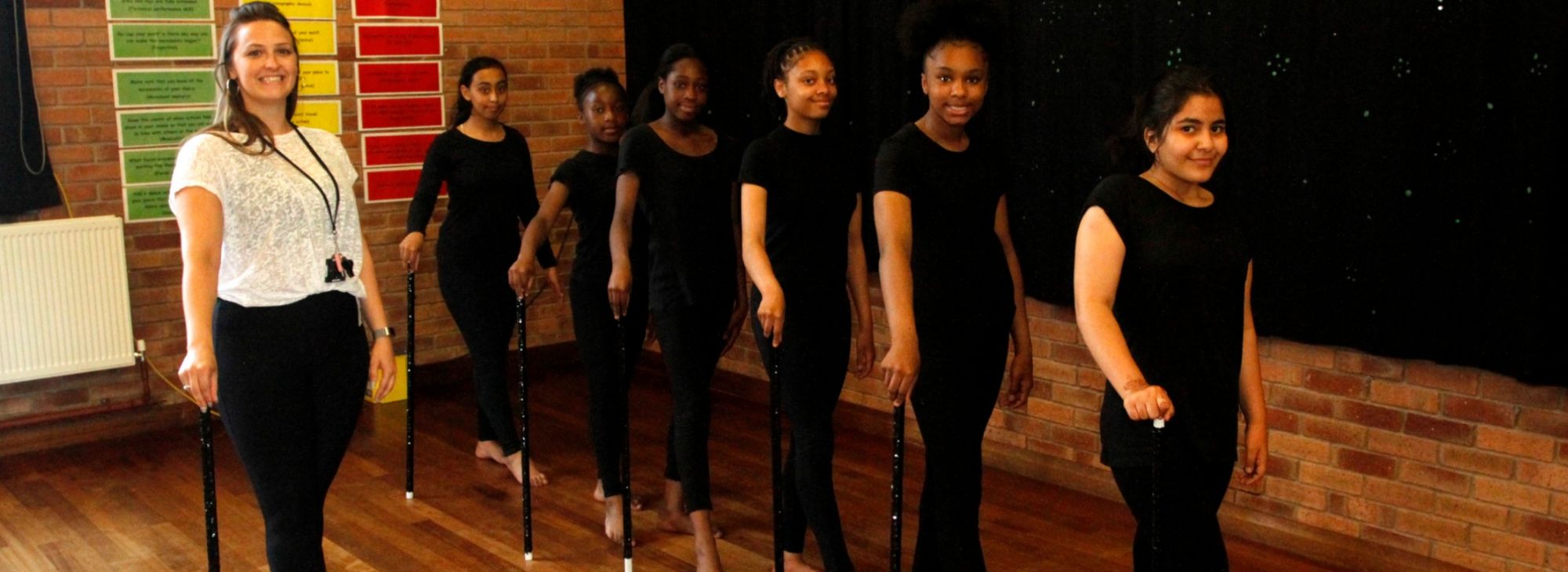Maths
Mathematics is the language of the universe, learning and exploring it is a creative and satisfying endeavour.
“It is impossible to be a mathematician without being a poet in soul” Sofia Kovalevskaya
Curriculum Intent
Through effective Teaching and Learning, we deliver and exceed the national curriculum in mathematics. The learning journey is mapped, so students are constantly building and reinforce their mathematical learning, such that they are skilled in both conceptual understanding and application.
Students will be able to succeed in national examinations and take their mathematics to use and apply to both other areas of learning and their wider lives.
Students will be logical, critical thinkers with a natural curiosity around problem-solving.
Learning in mathematics — what it will looks like
Key milestones of Teaching and Learning cycle in mathematics:
i. Pre-testing
ii. Knowledge Organisers (KO’s)
iii. Retrieval testing
iv. KO testing
v. End of term assessment
vi. Now Try This (NTT) assessment follow up
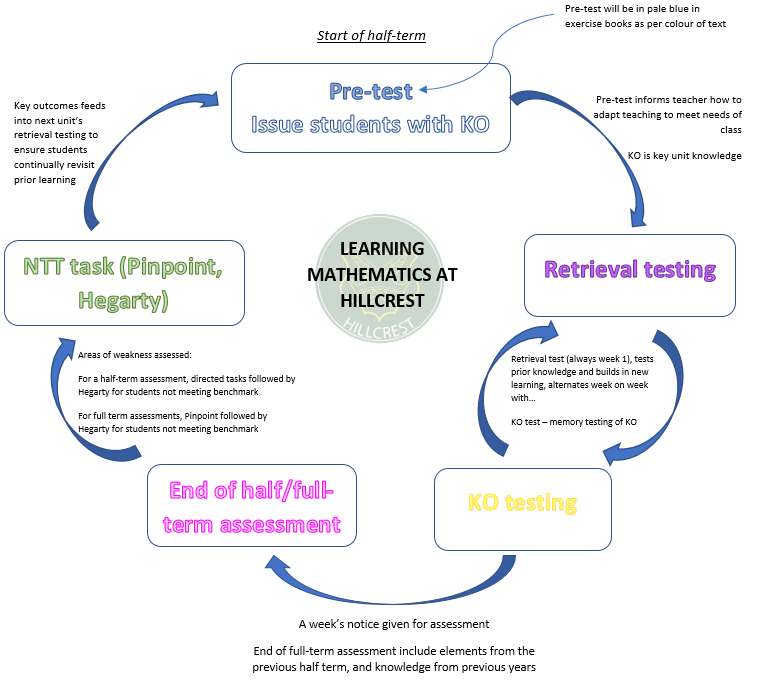
This structure of learning applies for years 7-10. Year 11 follows a similar structure, with allowances for exam preparation. Sixth form learning involves greater elements of extended learning to master mathematical concepts.
Curricular Journey
The mathematics curriculum at Hillcrest allows students to develop and explore areas of mathematics in a logical and cumulative manner. Interconnection and review of topics if critical to our learning journey and students are allowed plentiful opportunities to apply learnt skills in a variety of contexts.
Key: Number (Green), Geometry (Orange), Algebra (Blue), Ratio and Proportion (Pink), Probability and Statistics (Purple)
Topics of the same colour interconnect, though there is regular overlap between skills.
For example, in term 3a, in year 8, students study angles, which is part of geometry. However, they will require the use of number and algebra skills to support this work.
Key Stage 3 purpose: to establish fluency, reasoning and problem-solving. To explore concepts with clarity and depth
Key Stage 3
Following the Key Stage 3 curriculum, students enter the Higher (grades 4-9) or Foundation (grades 1-5) GCSE pathway.
Key Stage 4 purpose: to build on prior knowledge and acquire advanced skills. To apply knowledge and skills to variety of contexts.
Key Stage 4 (GCSE)
To continue with higher education in any subject, students require a grade 4 or 5 in mathematics. Science A-Levels predominantly require students to attain a grade 6 in mathematics, and to progress onto A-Level mathematics, students must attain at least a grade 7.
Key Stage 5 (A-Level)
Key Stage 4 purpose: to develop advanced mathematical knowledge and skills and a logical approach to problem-solving.
Overarching elements:
1. Mathematical argument, language and proof
2. Mathematical problem-solving
3. Mathematical modelling
These are explored through a programme of study comprised of ![]() Pure mathematics and
Pure mathematics and ![]() Applied mathematics (comprising Statistics and Mechanics equally).
Applied mathematics (comprising Statistics and Mechanics equally).
All areas are taught in parallel such that the AS-Level qualification can be obtained at the end of year 12. Students complete the full A-Level content in year 13.
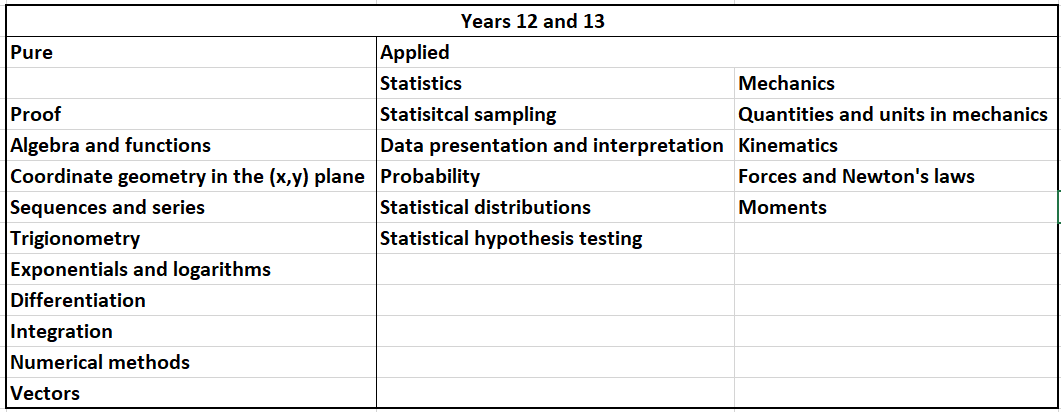
A-Level mathematics is a ‘facilitating A-Level’ and is useful preparation a wide range of degree courses and is a requirement for STEM and Economics undergraduate study.
Assessment Information
Key Stage 3 – students will have internal half-termly assessments and end of year examinations to help us determine their progress
Key Stage 4 (GCSE) – students will have internal half-termly assessment and end of year/mock examinations to help us determine their progress. They will sit an external examination at the end of year 11 comprising of 3 x 1.5 hours (2 of the papers are calculator examinations) – Exam Board: AQA
Key Stage 5 (A-Level) - students will have internal half-termly assessments to help us determine their progress. They will sit external examinations at the end of year 12 and 13 – Exam Board: EdExcel
Click here for A Level Maths information Booklet.
Mathematics Reading List
Maths Careers in the Curriculum Priorities
As a Maths department, our intent is to make sure the pupils explore certain skills to enhance their career development.
- There is a focus on problem solving throughout the whole of key stage 3, 4 and 5, to help the pupils become more resilient.
- There is a focus on STEM in key stage 3 and making the pupils more aware of other pathways that they may not have considered.
- There is a focus on Money management, this will help them become more aware and conscientious with their money.
These will be monitored through pupil voice.
All this will give the pupils an awareness of some of the skills needed in later life for careers development



